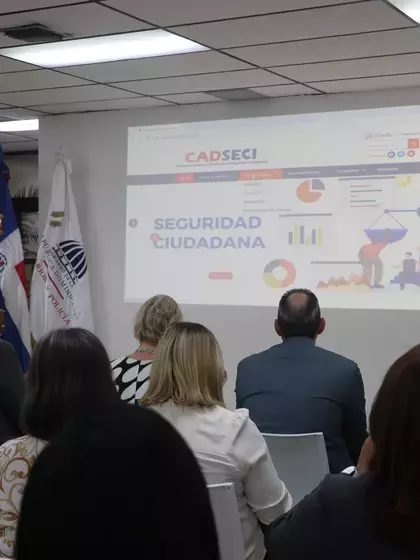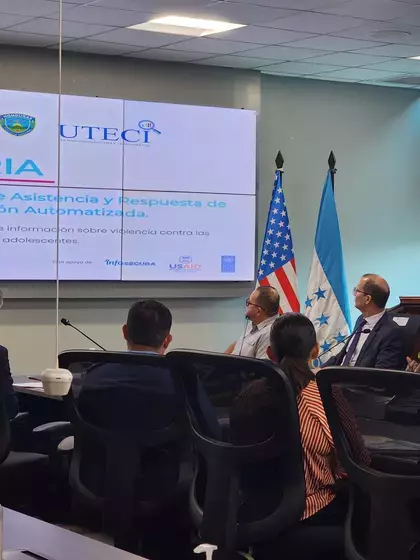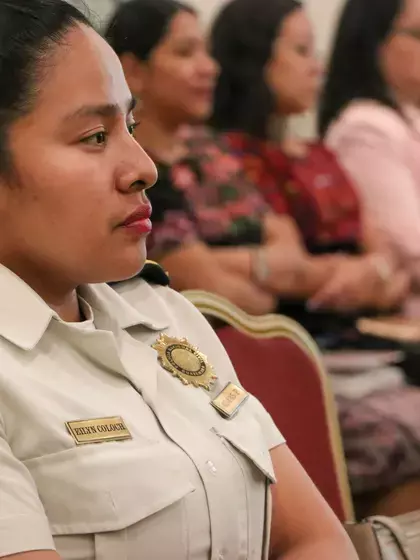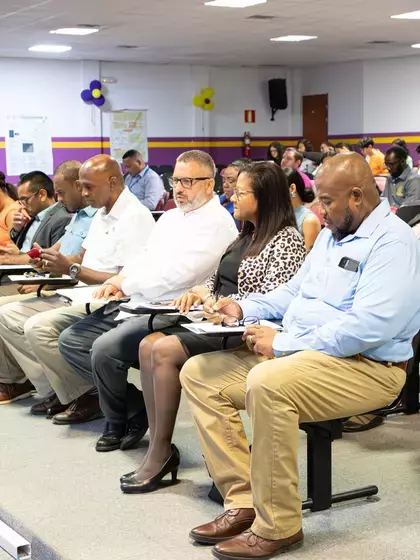InfoSegura supports high quality journalism to counteract violence

InfoSegura has carried out a fundamental task for almost ten years in Central America and the Dominican Republic: Working with citizen security data, enabling governments to formulate public policies on the basis of evidence.
Pushing this effort even further, the first Course on Data Journalism for Citizen Security was offered in early 2024 by InfoSegura. This was a unique opportunity for connecting with journalists, communicators and newscasters who have an interest in citizen security. The course provided these professionals with tools they need to get and select data, analyse and understand it as a reliable basis for preparing high quality news articles and reports.
To do so, the InfoSegura Regional Project, implemented by UNDP in collaboration with USAID, reached out to the best partner in the region: the Knight Centre for Journalism in the Americas at the University of Texas at Austin, a leader in educating communicators. The outcome of this partnership was the Course on Data Journalism for Citizen Security that recently concluded.
From the outset, this course was intended stand apart from the rest. There may be any number of courses about data journalism, but here the focus was on citizen security. When you factor-in the specialized nature of the contents, the Knight Centre’s experience with journalism education, and InfoSegura’s position as a regional leader in data management, the course provided hundreds of journalists with a unique opportunity to boost their careers and improve their training.
This initiative emerged at a critical juncture in Latin America. Despite the progress that has been achieved, this remains the most violent region in the world, and it is imperative to train communicators to be effective when they relay data regarding citizen security. With over 2,500 participants, UNDP, through the InfoSegura project, responded decisively to this urgent need, as professional communicators evinced by their interest and demand.
More than a training, the course is an agent of change, developing communications capacities that translate into effective communication with decision-makers and everyday citizens as well. Independent journalism, which is the backbone of democracy, gains an essential tool for institutional transparency and a balance between security and human development in this programme.
During the four synchronic sessions there was massive student participation with valuable exchanges of experiences and lessons learned. Adding to the richness of the course, participants from different countries took the opportunity to discuss and try to figure out specific security challenges from every region.
It has to be pointed out that this is not the end of the road. The online course is still available, ensuring that the knowledge and skills that can be acquired can continue to help those who are interested in using data to communicate about citizen security. The fact that the course is free, reinforces the commitment to keeping access to vital information open.
In all, this course is a milestone in reinforcing data journalism for citizen security in Latin America. Access to accurate information and the ability to transmit this effectively have become essential tools for creating more informed, democratic and safe societies. We celebrate not only the successful conclusion of the course, but its projection into the future where information and communication continue to play a key role in bringing progress and security to the region.





